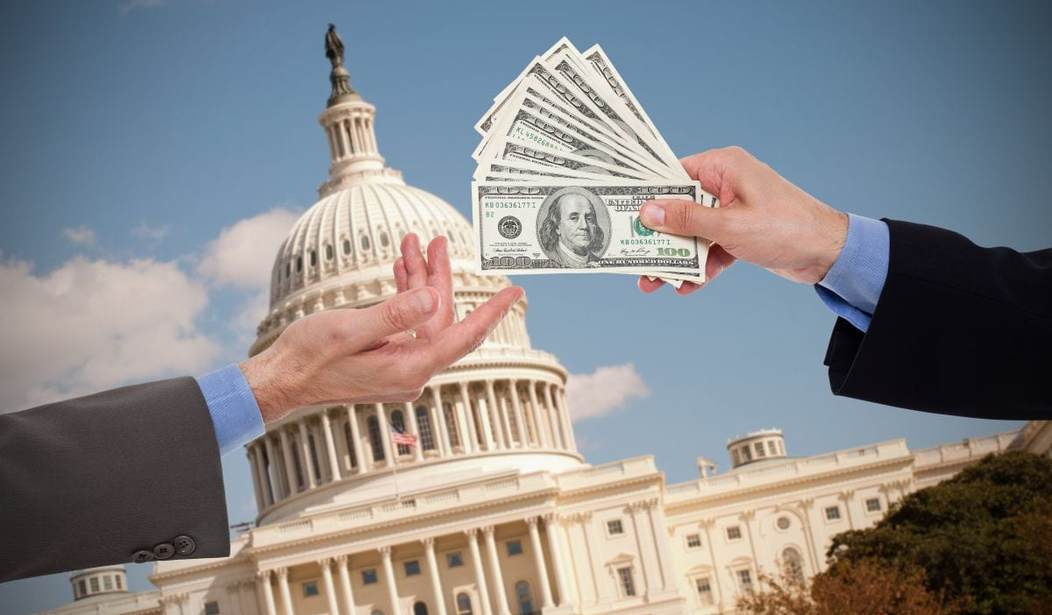Donald Trump’s fundraising team set an original goal of raising $1 billion for the fall campaign. This would have allowed Trump to compete with Hillary Clinton, who is expected to raise at least $1 billion like Barack Obama and Romney did in 2012.
But Politico interviewed more than a dozen members of Trump’s fundraising team and is reporting a shocker. Donald Trump won’t raise a billion dollars for his campaign. He will be lucky to raise one third of that.
In interviews, over a dozen major Republican Party donors and fundraisers who’ve signed on to help Trump raise money said they expected Trump to net only a fraction of his original $1 billion goal, perhaps netting less than a third of that.
Trump himself is already starting to distance himself from the $1 billion goal, telling Bloomberg News that he doesn’t need that much to win. But his refusal to commit to raise even half of that reflects reluctance among the GOP’s benefactors to collect cash on his behalf. Many of them say he might have trouble raising even $300 million.
That would almost certainly leave Trump at a steep disadvantage: Clinton is widely expected to hit the $1 billion mark, as President Barack Obama and Mitt Romney did in 2012. And it could have serious ripple-effects, leaving Republican down-ballot candidates, who are dependent on the national party to mount a well-funded turnout operation, in the lurch.
The dire predictions come as Trump and his top fundraisers prepare to meet Thursday in New York City to discuss the path forward. One person who plans on attending said a number of topics were likely to be on the agenda, including scheduling and overall goals. The gathering is expected to bring together many of those who’ve signed on to help a joint Trump and Republican National Committee account.
Those involved in the effort concede that Trump, a political newcomer who lacks the national fundraising network major party nominees typically have, is far behind.
“It’s going to be different,” said Gaylord Hughey, a prominent Texas bundler who is raising money for the joint fundraising account. “A lot of the things we’re doing from a fundraising perspective are usually done earlier in the campaign, as opposed to when one is on the verge of being the nominee.”
Another problem: Trump has so far resisted the donor stroking and courtship that presidential candidates traditionally engage in.
“He’s not your typical politician who dials for dollars every day,” said Ray Washburne, a former RNC finance chair who’s helping the New York businessman, adding that Trump is leaning heavily on the national party for donor outreach. “He’s not hitting the phones every day.”
Perhaps the biggest hurdle, though, is that Trump is reviled by much of the donor class, who consider him as an unpredictable bomb-thrower. Many say they simply don’t want to have anything to do with him.
The argument will be made that money isn’t everything these days. Just ask GOP nominee Jeb Bush.
But most of that primary cash goes to ad buys. Trump didn’t need a lot of money because he was getting millions of dollars worth of exposure free of charge courtesy of the media.
But the Republican National Committee, which Trump is leaning on for his get-out- the-vote operations, needs that cash if only to counter the massive GOTV campaign that Clinton’s team is gearing up. The victor in November will be the candidate best able to identify his or her voters and physically get them to the polls. The data-driven 2012 Obama campaign identified millions of their supporters — many of whom had never or rarely voted — and kept in constant contact via emails and social media. They were contacted by phone several times as well. Then, on election day, a volunteer asked if they needed a lift to the polling station.
There have been several estimates of how many votes the operation was able to add to Obama’s column. About the only certain thing is that turnout for the youth, blacks, and Hispanics all surpassed the turnout for 2008.
This kind of operation takes money. Lots of money. Trump will get his media exposure — but so will Clinton, given the historic nature of her candidacy. So in the end, if Trump can’t raise more than a third of what Clinton will raise, he will be at an enormous — perhaps fatal — disadvantage.










Join the conversation as a VIP Member